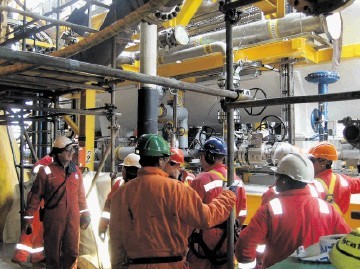
A low oil price of $50 a barrel could create 90,000 UK jobs by 2020, a new report has predicted, but government would need to act to support the North Sea.
Big four accountancy firm PWC said the sharp fall in oil prices since mid-2014 should boost output and employment in most sectors of the UK economy compared to when Brent crude was riding high at $108 per barrel.
But the firm said a more “central” case, which sees oil trading at around $73 per barrel by 2020, would boost UK GDP up by 0.5% on average over the next five years and employment around 40,000.
Kevin Reynard, office senior partner at PwC in Aberdeen, said lower oil prices would boost sectors that traditionally have high energy costs, such as fishing, food and drink, manufacturing and construction.
He added: “Nevertheless, there is still pain to be felt. Our onshore and offshore oil and gas industry is working hard to mitigate the impact of volatile, low oil prices.
“It’s essential the tripartite of industry, HM treasury and the new regulator, OGA, work together to safeguard skills in the North Sea and across the UK supply chain, preventing what could be an irreversible decline in the oil and gas industry and, instead, securing a new dawn for the UKCS.”
John Hawksworth, chief economist at PwC, said: “Future oil prices remain highly uncertain, so businesses would be well advised to look at alternative scenarios.
“If the oil price were instead to settle at $50 per barrel, however, then the eventual boost to UK employment could be more than twice as large as this at around 90,000 in 2020.
“Real household incomes also rise as oil prices fall, which increases consumer spending. And as a result of growing economic activity, we expect that government tax revenues will rise as the tax take from corporate and personal income taxes increases by more than the loss of North Sea oil and gas revenues.
“Lower oil prices should therefore have a positive impact for most sectors of the economy, households and the government, but the scale of these benefits remain highly uncertain depending on how oil prices evolve from here. And of course this does pose important challenges for the North Sea oil industry that the Chancellor should bear in mind in making Budget decisions.”
Read more oil and gas news here.
Recommended for you

